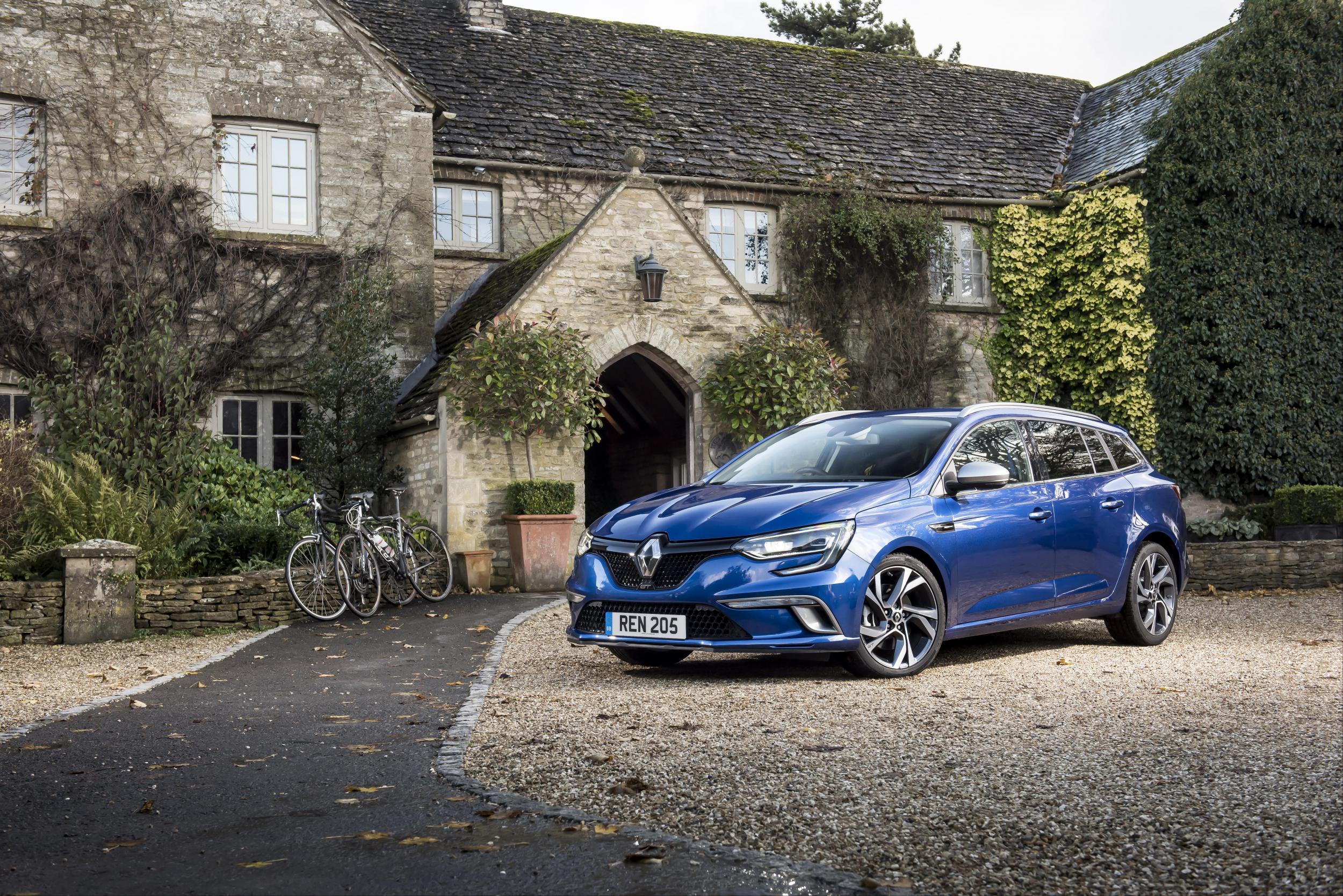Renault Megane Sport Tourer: A flawed genius
Sean O’Grady says: it doesn't really do anything brilliantly, but it does everything well


Your support helps us to tell the story
From reproductive rights to climate change to Big Tech, The Independent is on the ground when the story is developing. Whether it's investigating the financials of Elon Musk's pro-Trump PAC or producing our latest documentary, 'The A Word', which shines a light on the American women fighting for reproductive rights, we know how important it is to parse out the facts from the messaging.
At such a critical moment in US history, we need reporters on the ground. Your donation allows us to keep sending journalists to speak to both sides of the story.
The Independent is trusted by Americans across the entire political spectrum. And unlike many other quality news outlets, we choose not to lock Americans out of our reporting and analysis with paywalls. We believe quality journalism should be available to everyone, paid for by those who can afford it.
Your support makes all the difference.The new Renault Megane Sport Tourer is a flawed genius, and, like all flawed geniuses, is all the more intriguing for it.
The genius bit is the package – the blend of respectable performance, a modicum of style and useful practicality.
It doesn’t really do anything brilliantly, but it does everything well.
The on-paper performance figures – almost 10 seconds to 60 mph – don’t really do justice to the car’s eager and sporty character.
It’s an enjoyable drive, and well within the competences of most mortal motorists. The 1.3l engine revs pleasingly smoothly, with plenty of torque low down, so it’s also a flexible unit that will “pull” at any speed in any gear.
Bit like me, really. Anyway, this state-of-the-art engine design is a joint effort between Renault and Mercedes-Benz, and it is a superb achievement. It goes; it stops too – the brakes work very efficiently, and the gearshift is sweet and positive.
So that’s good. No longer, then, can Alan Partridge mock the lack of in-gear acceleration in the Megane driven by his ex-wife’s boyfriend.
As for practicality, well, I concede you can’t really get that much in the back with the rear seats up.
Manufacturers often add the word “sport” to the badging of their estate cars when they know they’re not really very roomy, and the Megane Sport Tourer is no exception.

It doesn’t even come close to its sector rivals, such as the Ford Focus Estate and the especially commodious Skoda Octavia Estate.
The Megane Sport Tourer is half-estate really. In that respect it is also very like the Kia ProCeed I tried recently, and the baby Mercedes-Benz CLA Shooting Brake – a sort of hybrid design that is halfway between a conventional hatch and a “proper” estate that you can get a wardrobe into.

Yet the extra space is useful for those of us who like to carry around a lot of clobber and you can see its appeal to shoppers or those who need to sling kids or a mutt in the back.
The spec
Renault Megane Sport Tourer GT Line
Price: £25,415 (as tested)
Engine capacity: 1.3l petrol 4-cyl, 6-sp manual
Power output (hp @ rpm): 140@5,000
Top speed (mph): 127
0-60mph (seconds): 9.8
Fuel economy (mpg): 48.7
CO2 emissions (g/km): 131
The upside is that on our ever more congested streets it is compact enough to manoeuvre and park. Of course, it has automatic parking assistance and the usual rear camera and warning bleepers to help.
The flaws, then, are all the more frustrating. From most angles this sports tourer looks pretty unsporty, a bit like it should have come from Renault’s economy brand Dacia.
Bold at the front, with that glossy plastic around the grille that’s so fashionable, things get much more restrained past the front wings, to the point of anonymity.

This 2019 car also has a little pod for the audio controls behind the steering wheel, which I can remember using in a 1999 Clio.
Much better to get all those buttons on the wheel itself. The cruise control also refused to engage, for no apparent reason.

At least the audio pod is easy to use; the big central touchscreen was trickier to navigate, and lacks shortcut buttons to cut through complicated menus.
It all made the Renault more cumbersome to use than it should have done.

Renault has had a tough time of it in the UK recently – like many other mainstream brands, such as Ford, Vauxhall and Peugeot, that have suffered from a pincer movement in the market.
The “premium” marques, such as Mercedes-Benz, Audi and BMW have invaded the small to medium car sector with attractive, aspirational products capitalising on their image.
At the other end, budget brands such as SsangYong and Dacia, and the value-for-money makes such as Skoda, Kia and Hyundai have tempted buyers for whom cash in the bank is more important than the badge on the grille.
So you have to give them the credit for producing such a well-engineered and enjoyable vehicle that could easily pass for one of its more prestigious rivals (and indeed shares an engine with the small Mercedes models).
Problem is, it could also pass for one of its less prestigious rivals.
Join our commenting forum
Join thought-provoking conversations, follow other Independent readers and see their replies
Comments